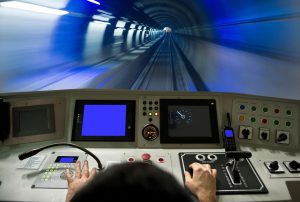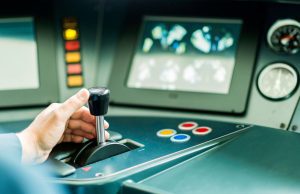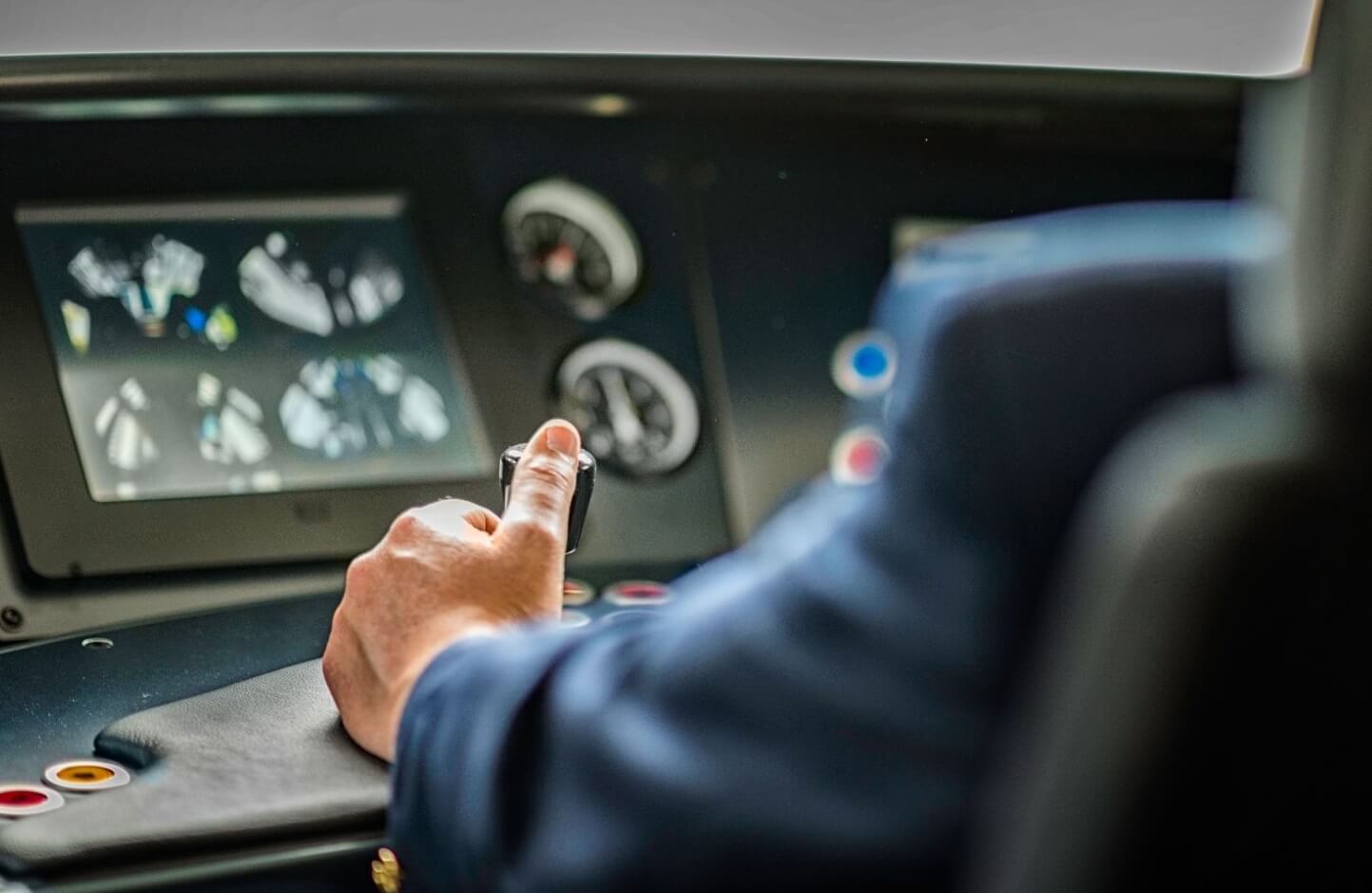What Are the Main Types of Train Drivers?
To become a train driver, you need to become a locomotive engineer or train operator, who is responsible for operating trains safely and efficiently. Here are the primary types of train drivers:
- Passenger Train Driver: Operates passenger trains on scheduled routes, ensuring the safe and timely transport of commuters. These drivers often interact with passengers and are responsible for managing on-board safety.
- Freight Train Driver: Drives freight trains that transport goods and materials. Freight train drivers must manage longer routes, often involving complex scheduling and coordination with other transport services.
- Light Rail and Metro Driver: Operates light rail or metro trains in urban areas, focusing on short-distance travel. These drivers often deal with higher passenger volumes and frequent stops.
- High-Speed Train Driver: Specializes in operating high-speed trains, which require advanced training and adherence to strict safety protocols due to the higher speeds involved.
- Diesel or Electric Train Driver: Depending on the type of locomotive, train drivers may specialize in operating diesel or electric trains. Each type has unique operational and maintenance considerations.
Each type of train driver requires specific training and qualifications, so it’s essential to choose a path that aligns with your interests and career goals.

What Does a Train Driver Do?
To become a train driver, you are responsible for the safe operation of trains, ensuring that they adhere to schedules and regulations. Here’s an overview of the main responsibilities of a train driver:
- Operating the Train: To become a train driver, you control the locomotive, managing acceleration, braking, and speed to maintain safe operation throughout the journey.
- Following Signals and Regulations: Drivers must adhere to signaling systems and operational regulations to ensure the safety of the train, passengers, and cargo. They monitor signals, track conditions, and communicate with dispatchers.
- Conducting Pre-Trip Inspections: Before each journey, train drivers perform inspections of the locomotive and train cars to ensure they are in good working order. This includes checking brakes, lights, and safety equipment.
- Monitoring Train Performance: During the journey, train drivers monitor the locomotive’s performance and report any issues to the control center. They must be vigilant and responsive to unexpected situations.
- Managing Passenger Safety: Passenger train drivers must ensure passenger safety. This involves handling emergencies, maintaining a safe environment, and sometimes providing customer service.
- Keeping Accurate Records: To become a train driver, you are required to maintain logs of their journeys, noting details such as departure and arrival times, delays, and any incidents. Accurate record-keeping is crucial for operational accountability.
- Collaborating with Other Personnel: To become a train driver, you work closely with conductors, dispatchers, and maintenance staff to ensure seamless operations and address any issues that arise during their shifts.
To become a train driver, you play a critical role in the transportation industry, ensuring that trains operate safely and efficiently while providing a vital service to passengers and businesses.

Average Train Driver Salary
Salaries for train drivers can vary based on experience, location, and the type of train operated. Here’s an overview of typical earnings for train drivers in the UK:
- Entry-Level Train Drivers: New train drivers typically earn between £24,000 and £30,000 per year during their initial training period. This phase often involves hands-on experience under supervision.
- Qualified Train Drivers: After completing their training and gaining experience, train drivers can earn between £35,000 and £50,000 annually. Many companies offer additional pay for night shifts or overtime.
- Experienced Train Drivers: With several years of experience, train drivers can earn between £50,000 and £70,000 or more, especially if they operate specialized or high-speed trains.
- Supervisory or Management Roles: To become a train driver who move into supervisory or management positions may earn significantly higher salaries, often exceeding £70,000 depending on the level of responsibility.
Train Driver Skills
To become a train driver, you need a combination of technical, analytical, and interpersonal skills to be effective in their roles. Key skills include:
- Technical Proficiency: A strong understanding of train systems, controls, and safety protocols is essential for effective operation. To become a train driver, you should be comfortable with the technology used in modern locomotives.
- Attention to Detail: To become a train driver, you must be detail-oriented to monitor signals, equipment, and operational procedures closely. Attention to detail is crucial for maintaining safety standards.
- Communication Skills: Effective communication is essential for coordinating with dispatchers and other personnel. To become a train driver, you must be able to convey information clearly and follow instructions accurately.
- Problem-Solving Abilities: To become a train driver, you must be prepared to handle unexpected situations, such as mechanical issues or emergencies. Strong problem-solving skills enable them to respond quickly and effectively.
- Concentration and Focus: Operating a train requires high levels of concentration and focus, particularly during long journeys or in challenging conditions. Drivers must be able to maintain their attention over extended periods.
- Physical and Mental Stamina: To become a train driver, you often work long shifts and may operate trains during irregular hours. Physical and mental stamina are essential for managing fatigue and maintaining alertness.

Train Driver Tips
Here are some essential tips for becoming a successful train driver:
- Understand the Requirements: Familiarize yourself with the qualifications and requirements for train drivers in your region. This includes understanding the necessary training, certifications, and physical fitness standards.
- Pursue Relevant Education and Training: While a specific educational background is not always required, having qualifications in engineering, transportation, or related fields can be advantageous. Look for training program s offered by railway companies or specialized institutions.
- Gain Experience in the Industry: Consider starting in related positions within the transportation industry, such as train attendant or maintenance roles. This experience can provide valuable insight into train operations.
- Stay Physically Fit: To become a train driver, you may undergo medical examinations to ensure they meet health standards. Maintaining good physical health is essential for managing the demands of the job.
- Learn About Safety Regulations: Familiarize yourself with safety regulations and procedures in the railway industry. Understanding these protocols is crucial for ensuring safe operations.
- Develop Strong Communication Skills: Effective communication is vital in the role of a train driver. Practice conveying information clearly and accurately, both verbally and in writing.
- Be Prepared for Irregular Hours: To become a train driver, you often work shifts that may include nights, weekends, and holidays. Being flexible and prepared for varying schedules is important in this profession.

Train Driver Requirements
Becoming a train driver typically requires specific qualifications and training. Here’s what you’ll need:
- Educational Qualifications: While formal education is not always mandatory, having a GCSE in English and math is often required. Some railway companies may prefer candidates with A-levels or a background in engineering or transport.
- Training and Apprenticeships: Many aspiring train drivers enter the profession through structured training programs or apprenticeships offered by railway companies. These programs include classroom instruction and hands-on experience.
- Medical Examination: To become a train driver, you must pass a medical examination to ensure they meet health and fitness standards required for the role. This often includes vision and hearing tests.
- Background Check: A criminal background check is typically required, as train drivers must adhere to strict safety and security protocols.
How to Become a Train Driver
Here’s a step-by-step guide to becoming a train driver:
- Understand the Qualifications Required: Research the qualifications and requirements for becoming a train driver in your region, including educational prerequisites and training programs.
- Pursue Relevant Education: Obtain the necessary educational qualifications, such as GCSEs in English and math. Consider further studies in engineering or transport for a competitive edge.
- Apply for Training Programs or Apprenticeships: Look for training programs or apprenticeships offered by railway companies. These programs will provide essential training and hands-on experience required for the role.
- Complete the Required Training: Participate in the training program, which will include both classroom instruction and practical driving experience under supervision. This training is crucial for gaining the skills and knowledge needed to operate trains safely.
- Pass the Medical Examination: Undergo and pass the required medical examination to ensure you meet the health and fitness standards necessary for train drivers.
- Gain Practical Experience: After completing your training, you may start as a trainee driver or in a related role. Gaining experience will help you refine your skills and prepare for full driver responsibilities.
- Obtain Necessary Licenses and Certifications: Once you have completed your training and gained sufficient experience, apply for the necessary licenses and certifications to operate trains legally.
- Start Your Career as a Train Driver: Begin your career as a train driver, adhering to all safety protocols and operational guidelines. Continuously develop your skills and knowledge throughout your career.
Frequently Asked Questions
Why Should You Become a Train Driver?
Becoming a train driver offers a unique and rewarding career where you can be part of the transportation industry, contributing to the movement of people and goods. It provides opportunities for travel, a stable income, and the chance to work in a dynamic and essential field.
Is a Career as a Train Driver Right for You?
If you enjoy working independently, have strong attention to detail, and are passionate about trains and transportation, a career as a train driver could be a great fit. This role requires a commitment to safety and a willingness to work varied hours.
What Are Typical Train Driver Salaries?
Entry-level train drivers typically earn between £24,000 and £30,000 per year. With experience, salaries can rise significantly, with qualified drivers earning between £35,000 and £50,000. Experienced drivers, especially those in specialized roles, can earn upwards of £60,000.
Which Qualifications Can Help with a Career in Train Driving?
While specific qualifications may vary, having GCSEs in English and math is often required. Additionally, pursuing further education in engineering, transportation, or related fields can enhance your qualifications. Completing a specialized training program or apprenticeship with a railway company is essential for gaining the necessary skills and knowledge.
Do I Need to Be Experienced to Get Started?
While prior experience in the railway industry can be beneficial, many companies offer training programs that cater to newcomers. Aspiring train drivers can often start as assistants or in related roles to gain experience before applying for driver training programs.
What Is the Career Outlook for Train Drivers?
The career outlook for train drivers is generally positive, as the demand for efficient transportation systems continues to grow. With ongoing investments in rail infrastructure and increasing focus on sustainable transport, opportunities for qualified train drivers are expected to remain steady.
Train Driver Hierarchy and Progressing Within the Role
Train drivers typically start in entry-level positions, with opportunities to advance to senior driver roles, specialized positions, or supervisory roles. Experienced drivers may also transition into training positions, helping to mentor new drivers or develop training programs.
Train Driver Exit Options and Opportunities
Experienced train drivers may choose to move into other roles within the railway industry, such as operations management, safety auditing, or even transitioning to roles in transportation planning or consultancy. Some may decide to pursue careers in related fields, such as logistics or fleet management.


